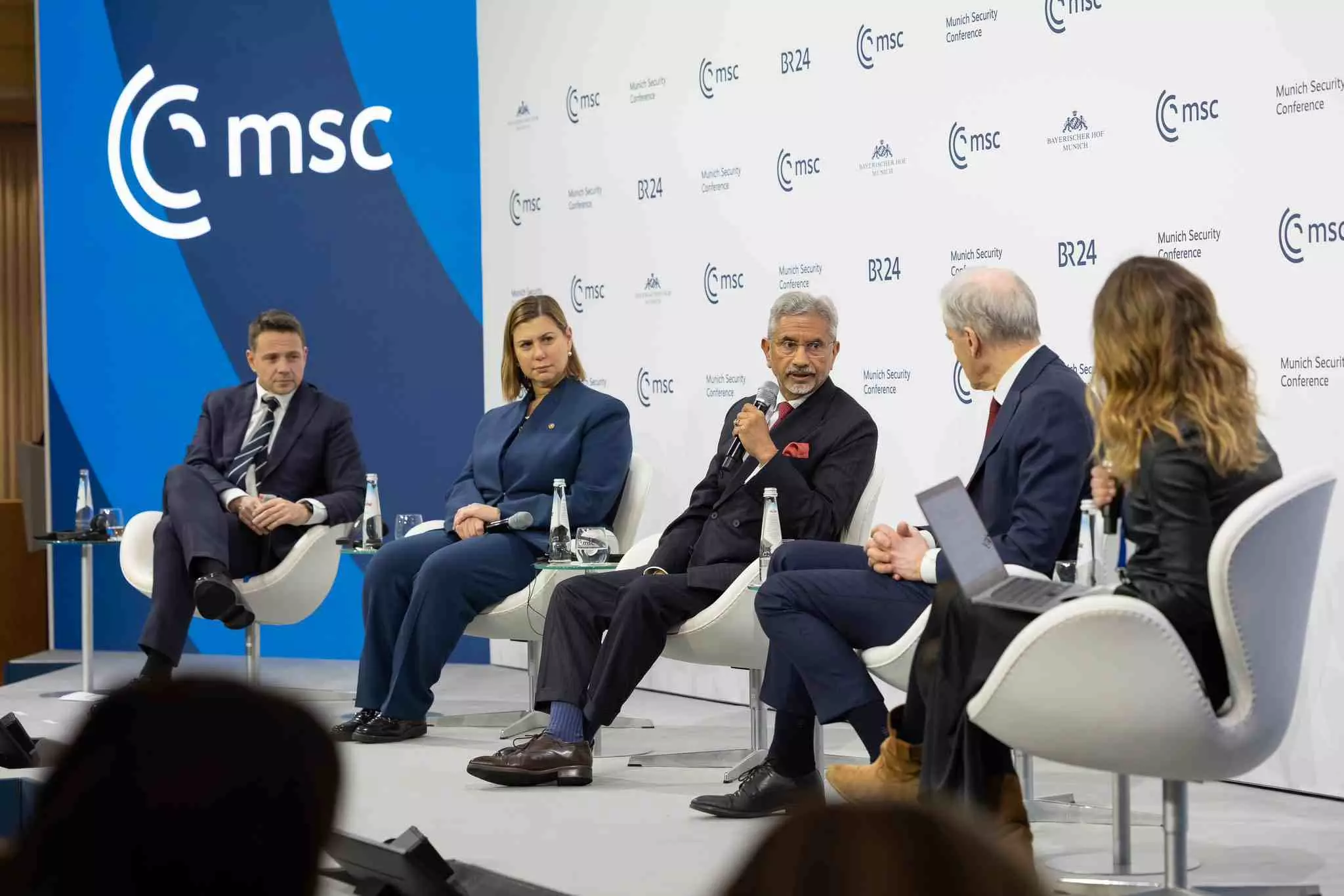
Jaishankar bats for democracy with inked finger, slams West for ‘double standards’
He said there was a time when the West “treated democracy as a Western characteristic” and “was busy encouraging” non-democratic forces in the Global South

External Affairs Minister S Jaishankar on Friday (February 14) hit out at the West for what he dubbed as the double standards of “global democracy”. He also said that the West treated democracy as a “Western characteristic” and had been busy encouraging “non-democratic forces” in the Global South.
Speaking during a panel discussion on ‘Live to Vote Another Day: Fortifying Democratic Resilience’ at the Munich Security Conference, Jaishankar said he differs in the view that democracy is in trouble globally and highlighted India’s democracy.
Apart from Jaishankar, the panel comprised Norway's Prime Minister Jonas Gahr Store, US Senator Elissa Slotkin and Warsaw Mayor Rafal Trzaskowsk.
Also read: 'Digital era demands trust and transparency': Jaishankar at India-France CEO Forum
Shows inked finger
Jaishankar said the countries of the Global South are more likely to relate and say that the “Indian experience is more transposable to their societies than perhaps to those of others”. He also said it was key for the West to embrace the successful models of non-Western countries if it wants democracy to prevail.
Asked about his thoughts on Western democracy, he said, “I think I appeared to be an optimist in what is relatively a pessimistic panel if not room. I will begin by sticking up my finger and don't take it badly, it is the index finger. This, the mark you see on my nail, is a mark of a person who has just voted. We just had an election in my state (Delhi). Last year, we had a national election. In Indian elections, roughly two-thirds of the eligible voters vote. At the national elections, (out of) the electorate of about 900 million, about 700 million voted. We count the votes in a single day.”
“From the time we started voting in the modern era, 20 per cent of more people vote today than they did decades ago. So, the first message is that somehow democracy is in trouble globally, worldwide, I am sorry, I have to differ with it. I mean, right now, we are living well. We are voting well. We are optimistic about the direction of our democracy and for us democracy is actually delivered,” he added.
Counters US Senator
The Union minister for external affairs also countered Senator Slotkin’s remark that democracy “doesn't put food on your table”.
“Actually, in my part of the world, it does because we are a democratic society, we give nutrition support, and food to 800 million people and for whom that is a matter of how healthy they are and how full their stomachs are. The point I want to make is look different parts of the world are going through different conversations. Please do not assume that this is a kind of universal phenomenon, it is not,” he said.
He also said India, despite “all the challenges” it faced, even at a low income, “stayed true” to the democratic model. “When you look at our part of the world, we are pretty much the only country that has done that. So, I think this is something the West should look at because if you do want democracy eventually to prevail, it important the West also embraces the successful models outside the West,” he said.
Also read: Jaishankar says India-EU relations 'more important than before'
Universal aspiration
Asked whether nations in the Global South still aspire to a democratic system and the model that would attract people, Jaishankar said, “Look, to an extent, all big countries are unique to an extent. But, we would certainly hope, I mean to the extent, we think of democracy as a universal aspiration, ideally a reality, but at least an aspiration, in large part because India chose a democratic model after independence and it chose a democratic model because we had fundamentally a consultative pluralistic society.”
He also said there was a time when the West “treated democracy as a Western characteristic” and “was busy encouraging” non-democratic forces in the Global South. “It (West) still does. I can point to some very recent ones where everything that you say you value at home, you don't practice abroad. So, I do think the rest of the Global South will view the successes, shortcomings and the responses of other countries,” he said.

